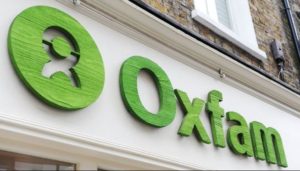String of scandals for NGOs to clean house
 NGOs working in the humanitarian sector across the globe have come under scrutiny recently after a string of scandals involving misbehaviour by aid workers.
NGOs working in the humanitarian sector across the globe have come under scrutiny recently after a string of scandals involving misbehaviour by aid workers.
In May, the United Nations recalled a 46-member Ghanaian peacekeeping police unit from the protection of civilians in the town of Wau, in South Sudan, following allegations of members of the unit having ‘transactional sex’ with locals.
This followed the Oxfam sexual misconduct scandal where the charity was accused of covering up the use of prostitutes by its aid workers in Haiti.
Allegedly, the culprits went on to find work elsewhere in the aid sector.
According to The Times newspaper, some of the men named in Oxfam’s 2011 internal report who were either sacked or allowed to resign from their posts were subsequently employed by other charities including Action Against Hunger and Mercy Corps.
Both organisations said they had received positive references for the men. It has also been alleged that concerns about one of the men had been raised several times in different postings.
Even more recently, noted humanitarian aid worker and founder of Street Kids International Peter Dalglish has been accused of paedophilia in Nepal.
He is accused of molesting two boys, aged 12 and 14. Officials involved in the case say they have evidence that the Canadian national used his influential position to lure poor children, promising them a better education, foreign travel, and job opportunities while sexually abusing them. Dalglish has denied all the allegations.
The allegations of questionable conduct are not limited to individuals.
EuroRelief is an evangelical Christian NGO and is the sole provider of tents, clothing and food for more than 5000 refugees living in the Moria refugee camp on the Greek island of Lesvos.
Allegations have emerged that the organisation uses food, clothes, travel permits – and even access to WiFi – to coerce vulnerable refugees into converting to Christianity.
The group is also accused of forcing Christian ideology on refugees – even when asked not to; and exploiting refugees through free labour. Eurorelief denies the allegations.
In the wake of these scandals humanitarian organisations are being forced to examine the human resources and safeguarding practices that allowed alleged perpetrators of sexual exploitation to move from disaster zone to disaster zone, ignored or undetected.
The UK’s aid chief Pennt Mordaunt has floated the idea of a “global register” of aid workers to prevent those who have been involved in misconduct from moving on to other organiaations undetected.
Charities such as Save the Children and Islamic Relief have also proposed solutions to make the system more accountable.
They point to the need for more communication between headquartered HR teams and field offices; better intra-sector recruiting and hiring coordination; and a reassessment of the use of short-term contracts, which can make field staff feel vulnerable in speaking out.
Meanwhile, Executive Director of Oxfam Winnie Byanyima has said that the recent allegations were both a sign that the charity’s efforts to encourage reporting are working, as well as a wake-up call.
The charity’s own figures show that it handled 87 allegations of sexual exploitation by staff in 2016 and 2017, up from 26 cases in 2014.
“We have a very strong safeguarding policy, and in fact the number of reported cases has increased as a result of stronger policy and stronger enforcement, so we see that this is in part a result of moving in the right direction,” Ms Byanyima said.
“We are not where we should be, and we are working harder on training our people, setting the system to work, [and] making it safe for people to report.”
“Yes, the system is now working and it’s also now showing us that we are far from where we should be,” she said.
Laurie Nowell
AMES Australia Senior Journalist












